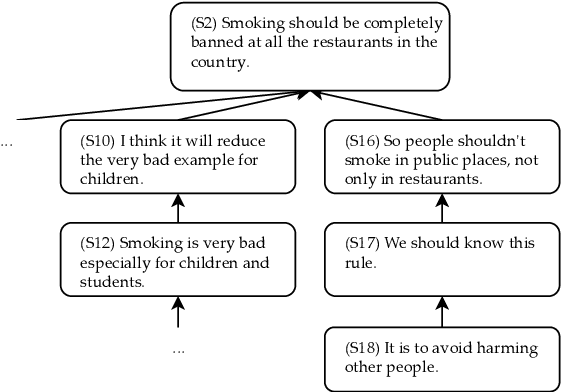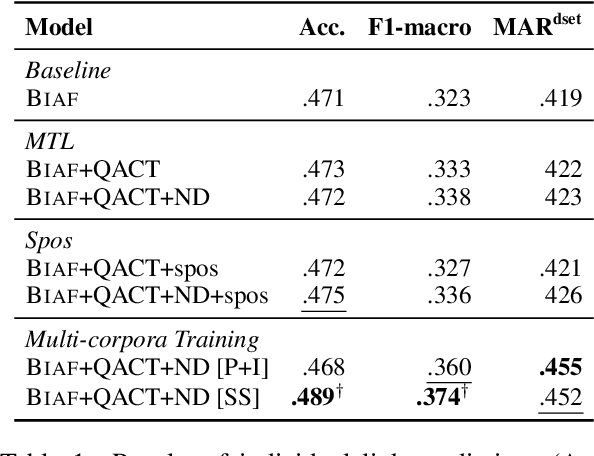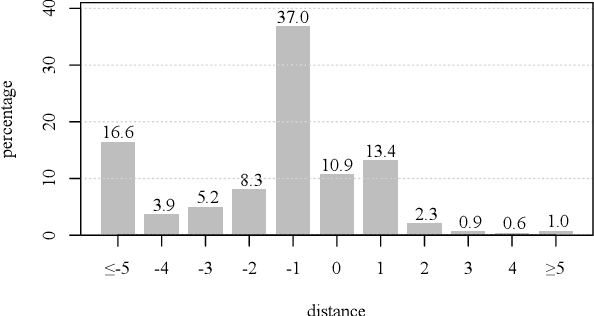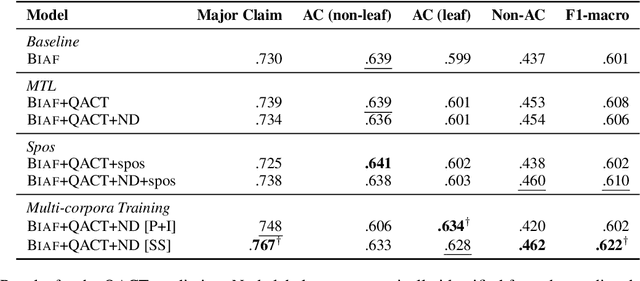Multi-Task and Multi-Corpora Training Strategies to Enhance Argumentative Sentence Linking Performance
Paper and Code
Sep 27, 2021



Argumentative structure prediction aims to establish links between textual units and label the relationship between them, forming a structured representation for a given input text. The former task, linking, has been identified by earlier works as particularly challenging, as it requires finding the most appropriate structure out of a very large search space of possible link combinations. In this paper, we improve a state-of-the-art linking model by using multi-task and multi-corpora training strategies. Our auxiliary tasks help the model to learn the role of each sentence in the argumentative structure. Combining multi-corpora training with a selective sampling strategy increases the training data size while ensuring that the model still learns the desired target distribution well. Experiments on essays written by English-as-a-foreign-language learners show that both strategies significantly improve the model's performance; for instance, we observe a 15.8% increase in the F1-macro for individual link predictions.
 Add to Chrome
Add to Chrome Add to Firefox
Add to Firefox Add to Edge
Add to Edge